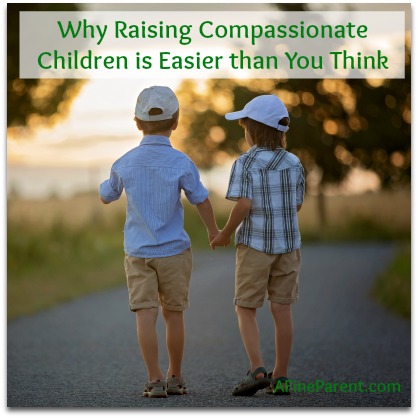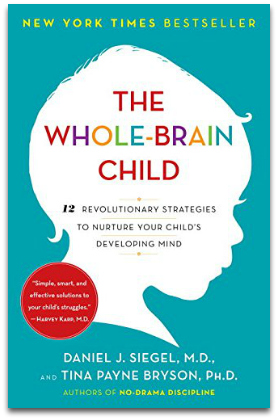 If I asked parents how they would like their children to turn out I am pretty sure that being kind and compassionate would be pretty close to the top of their list.
If I asked parents how they would like their children to turn out I am pretty sure that being kind and compassionate would be pretty close to the top of their list.
We all wish this for our children and we all worry when we see signs of entitlement, or notice our children struggling to get on well with others.
We feel that, at some age, we should teach our children that not everyone in our world is as lucky as them to be clothed, fed, and with a roof over their heads. We hope that they will grow up to care about others, and to help make the world a better place.
A few mornings ago, my six-year-old daughter woke up and demanded “water!’’ in an agitated, frustrated kind of voice. My first reaction was to grit my teeth and to ask myself why she was acting so ‘entitled.’
To make me even more upset, I’d come across an article awhile ago about how if our child asks us to do things that they can easily do themselves then this could be a sign of entitlement.
However a few seconds into my thought process I calmed down and reflected on what was really going on here.
My daughter had a cough and had been coughing on and off throughout the night. She was feeling tired and not 100%. Sure, the tone in her voice made me feel irritable, but don’t I sometimes speak like that when I’m not feeling good?
And don’t I also ask my husband to bring me a cup of tea, when I’m exhausted at the end of the day? (Maybe I don’t yell “tea!”, but I’m sure sometimes I’m not as nice as I could be.)
The parenting approach that I teach; Hand in Hand Parenting is based on a simple truth about how our children’s emotions work, that they are born loving, completely good and compassionate. It’s human nature. It’s the reason we care so deeply that our children are kind, and value it perhaps even more than material success.
There’s one thing that gets in the way of our child’s compassionate nature, and that’s when they aren’t feeling good themselves.
 Dr. Dan Siegal, clinical professor of psychiatry, and author of The Whole Brain Child, teaches parents about how brain functioning influences children behaviour.
Dr. Dan Siegal, clinical professor of psychiatry, and author of The Whole Brain Child, teaches parents about how brain functioning influences children behaviour.
At the bottom of the brain there is the brain stem which is responsible for involuntary processes such as breathing, heart rate and digestion.
Next, surrounding this is the limbic system, which works with the brain stem to create our emotions. Finally at the front of the brain is the pre-frontal cortex, which is responsible for processing language, and rational, reasonable thinking.
When humans don’t feel good, energy in the brain tends to be concentrated in the limbic system, which means that at these times, the pre-frontal cortex doesn’t function well. This is why when we get upset, we might flip out at our partner or say something we regret.
Our children are no different! In fact it’s much harder for them to regulate their emotions, because their pre-frontal cortex will not be fully developed until they are in their twenties. That’s why when they’re not feeling good, they may seem to ‘forget’ everything you’ve said about polite behaviour and respecting others.
So imagine you’ve gone to the toy store to pick out a toy for a friend’s birthday party. Then your child ends up having a massive meltdown because you won’t buy the toy they want for themselves. It can be easy to get caught up in thinking your child is entitled and selfish for thinking of themselves instead of their friend.
But when you look at the brain science something different is going on. Psychologist Aletha Solter coined the term ‘broken cookie phenomenon’ to explain that when our child has a big upset about something small, there is often a bigger reason under the surface that they can’t articulate.
When children are happy and well-connected to us, they can genuinely think well, co-operate with us, and accept our limits in a reasonable way. When a child is desperate to have something and throws a tantrum if we don’t give it to them, there may be a bigger hurt under the surface, one they may not be able to put into words.
Perhaps they are processing big feelings about school struggles, or a new sibling arriving. Or perhaps they are simply using this moment to let go of a backlog of stress that has built up over time.
Crying is actually a healing process, a natural way of releasing stress and tension. Stress hormones are literally released through tears. Children often pick ‘pretexts’ to have a big cry about something.
One of the most helpful things we can do when our child cries, is listen the whole way through, without trying to distract them from their emotions. This clears the upset that is clouding their thinking.
Raising compassionate children starts with a simple shift in our thinking. Instead of seeing our child’s impolite demands, or emotional outbursts as a sign of selfishness or entitlement, we can think of them as a sign or expression of hurt feelings.
To become compassionate adults they don’t really need much guidance or teaching, because kindness comes from within. What they need most is for us to act with compassion towards them, so that they can heal the hurts that get in the way of them being their natural, good, kind selves.
Here are five tips to help your child’s compassionate nature shine through.
Model Compassion
Have you ever had your own angry words come back to you like a boomerang when your child is feeling frustrated? It’s not always easy to keep our cool, but responding to our children in a kind, gentle way as much as we can is key to modelling the compassion we’d like to see in them.
Punishment and reward can contribute to ‘entitlement,’ because they are focusing on ‘getting’ or not ‘getting’ certain material things, or scenarios. Instead, take a leap of faith and trust that loving limits and communication can keep your child’s behaviour on track.
Nurture Yourself
 As parents we often get caught up in the stress of dealing with challenging behaviour and don’t always notice our children’s goodness. This can lead us to lecture them, or lose our temper, rather than noticing that they are actually having a hard time.
As parents we often get caught up in the stress of dealing with challenging behaviour and don’t always notice our children’s goodness. This can lead us to lecture them, or lose our temper, rather than noticing that they are actually having a hard time.
One of my top tips for nurturing yourself is to find a fellow parent to be a ‘listening partner.’ A listening partnership is when two parents take turns to talk and listen about how parenting is going.
It seems like a simple concept, but when done right, this can be very powerful. This process of venting your feelings helps you return to your child feeling compassion towards them, and respond as the parent you want to be, even when their behaviour pushes your buttons.
Snuggle Away the Demands
When your child is demanding, react in playful mode rather than lecture mode. Move in close, give them a hug or a snuggle. If you need to say no, say it with love and connection rather than shouting it across the room.
Often beneath a demand is a deeper need for connection with you, and this loving way of saying no gives children what they need.
Laugh Away the Grumps
This is what I call Giggle Parenting. It’s when you meet your child’s grumpy behaviour or refusal to co-operate with a playful response.
Perhaps your child doesn’t want to eat their dinner, so maybe a teddy tries to serve it, and pretends to eat it all up themselves. Or your child refuses to help clear up their toys, so you have a playful game of chase where the toys chase them and beg to be put back in the right place.
Laughter like crying, helps children release stress and tension that can get in the way of their behaviour and their thinking.
Focus on Needs, Not Wants
In the words of Mick Jagger, ‘you can’t always get what you want, but if you try sometimes you find you get what you need.’ When children have a lot of ‘selfish’ wants, it’s often because deep down they have an underlying need.
So try to see beyond your child’s request for another cookie, or a new toy, and ask yourself what do they need in that moment. Most of the time it’s an extra does of connection, or to have feelings heard.
So you’ll see there’s no ‘magic formula’ for raising children who grow up to think of others and contribute to the world being a better place. It’s more about thinking about how we’d like our children to treat people, and modelling that kindness and compassion in the way we respond to them.
The 2-Minute Action Plan For Fine Parents
Think back over the last few days or weeks, and reflect on moments (however small!) where you noticed your child’s natural goodness shining through. Write them down to remind yourself how good your child is.
The Ongoing Action Plan For Fine Parents
Stay aware of how you and your child are feeling. Take regular time to take care of yourself and your own emotions, so that you can be there in a compassionate way for them.
Plan regular special time with your child. This is one-on-one time where you spending time doing something of your child’s choice. This helps strengthen their sense of connection to you, so that their thinking (and behaviour!) stays on track.
AWESOME, AWESOME read!! I strive to implement many of these strategies as I’ve picked up a few pointers when training to become a teacher. However, many people find view it as too passive, especially in a world where we can use mobile devices as a neans to pacify children. I’ll definitely share!
Wow, Thank you, I really needed this to start my week off on the right foot. Summer gets long by August so this is a good reminder.
I will look further into Hand in hand parenting. My kids are almost 10 & 13 and I feel I need this as much now, as ever.